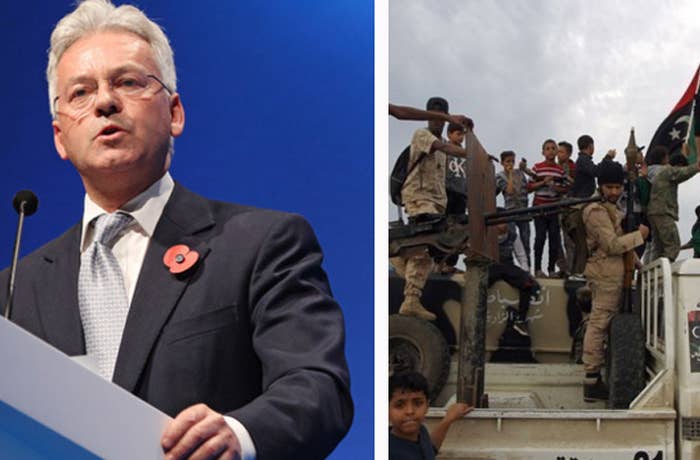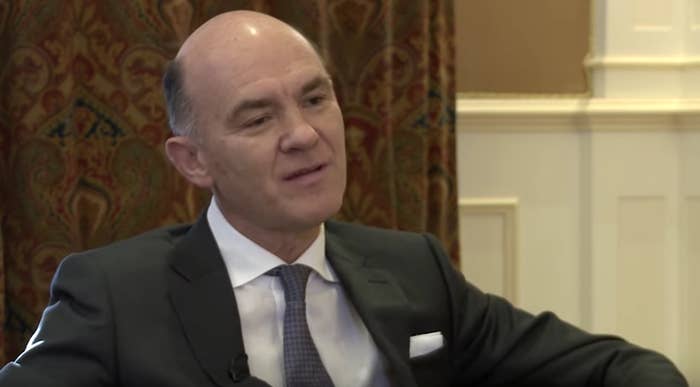
A former Tory minister has taken a job at an oil firm owned by a company he helped broker a $1 billion deal for while in office – for which he was accused of having a "conflict of interest".
Last week the Advisory Committee on Business Appointments (ACOBA) published a letter of advice saying that Sir Alan Duncan – who is no longer a cabinet secretary – was clear to take a job as a non-executive director of Fujairah Refining Ltd.
In the latest Register of Member's Interests, Duncan has declared a salary of £8,000 a month in the role "for an expected annual commitment of about 156 hours, comprising three weekend board meetings each involving around 52 hours' work including preparation and travel".
The majority shareholder of Fujairah is a company called Vitol. In 2011, Duncan, then minister of state for international development, helped in negotiations involving the company and a group of Foreign Office officials – the "Libya Oil Cell" – who were trying to control the flow of oil into and out of the country.
The deal allowed the company to work with Libyan rebels: It enabled Vitol to take petrol and gas into Benghazi and bring out crude oil. This arrangement was said to be crucial in toppling former dictator Muammar al-Qaddafi, as it helped enforce sanctions against him while allowing the rebels to get supplies.
There was no suggestion of any impropriety on Duncan's part regarding his role helping the Libya Oil Cell. At the time he said "strict procedures" had been adhered to, that the rebels had not been "encouraged to take sides" in the deal, and that while it could equally have gone to "BP and Shell", Vitol were "the only ones prepared to take the risk". Downing Street also told The Guardian that Duncan's expertise had been crucial in allowing the officials working on the project to understand the complexities of oil markets.
However, there was criticism from an opposition MP who accused him of a conflict of interest after it was revealed that the owner of Vitol, Ian Taylor, had given at least £200,000 to the Conservative party.
Duncan told BuzzFeed News this week that this "so-called donation ... was in fact a donation to central party funds, which was allocated by CCHQ to support the then shadow business frontbench team".
Last year, Taylor gave the party around £600,000 according to the Electoral Commission.
Duncan also said that there were no "introductions" involved in the Libya deal and added: "This was a baseless story, as was established beyond doubt at the time. Any suggestion that any improper action took place is unfounded and possibly libellous."

The committee's letter notes that Duncan "had some contact with [Vitol] while in ministerial office" through his involvement in the deal, but doesn't go into further details. It reads:
However, [the Committee] took into account the fact that you left ministerial office over 18 months ago, and that this contact was more than two years before that. The Committee further took into account your previous career in the oil industry, and the fact that you carried out some work for Vitol prior to becoming a Minister. They also noted that you had no access to commercially sensitive information about any competitors of the organisation during your last two years in office and that this new role will not involve any contact with the UK government.
Vitol's history has not been without controversy. In 2012, it was alleged to have skirted sanctions by buying and selling Iranian crude oil. In a statement to Reuters, the company said: "A Bahraini subsidiary company purchased a spot cargo of fuel oil from a non Iranian counterparty in July 2012. The fuel oil delivered under contract was of Iranian origin. Vitol Group companies no longer purchase any product of Iranian origin."
Five years before that, it pleaded guilty to grand larceny for providing kickbacks to Iraq under the UN oil-for-food programme.
